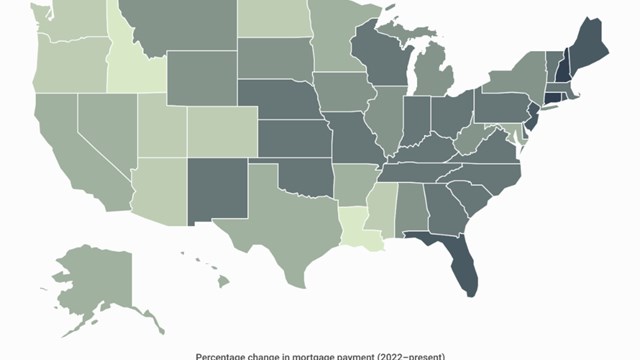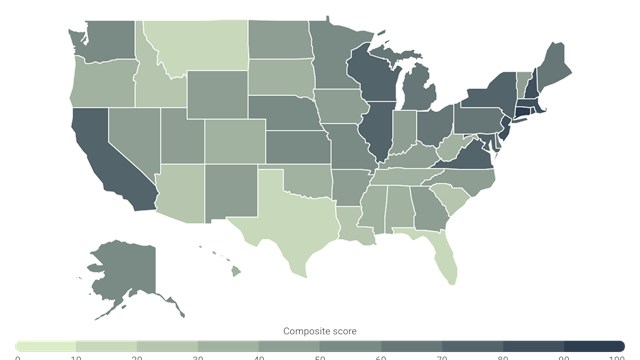This past July, the U.S. Department of Justice (DOJ) announced a major lawsuit and settlement with the National Association of Realtors (NAR) about anti-competitive practices. According to Stephen Brobeck, a senior fellow at the Consumer Federation of America (CFA), “The settlement will discourage blatant discrimination against discount brokers and the steering of buyers to high-commission properties, but will fail to significantly increase real price competition. Only the uncoupling of commissions, so that both buyers and sellers negotiate and pay their own broker compensation, can foster the price competition that exists in most other consumer markets.”
The current commission structure protects realtors from this price competition. Sellers ostensibly pay the entire commission, which is typically split between the listing agent and the buyer’s agent. Sellers are limited in negotiating the commission both by listing agent intransigence – as documented by CFA’s 2019 report, Hidden Real Estate Commissions: Consumer Cost and Improved Transparency – and by the real fear that buyer agents will not show them low-commission properties, about which the DOJ complains. As a result, agents have been able to maintain fairly uniform commission rates in local markets whose national average in 2019, according to Real Trends, was 5.7%. These rates are much higher than those in almost all other developed countries.
In response to the DOJ complaint, the NAR has agreed to do the following: First, to make publicly available the compensation offered to buyer agents on MLS listings. Second, to prohibit buyer agents from representing their services as free to buyers. And third, to give all licensed agents, with the approval of sellers, access to the lockboxes of properties on MLS listings.
These changes will likely curb some overt discrimination against discount brokers. If all consumers - not just individual buyers working with an agent - have easy access to information about buyer commissions, and the information is included prominently on websites accessed by buyers, buyer agents who are tempted not to show low-commission properties will have a greater incentive to resist this temptation. In addition, with a new lockbox rule, listing agents will find it more difficult to discourage discount buyer brokers from showing listings.
Consumers will also benefit, according to the CFA’s statement. Buyers will be less likely to be steered to high-commission properties, and if sellers have easy access to all commission splits in a local housing market, they can judge for themselves whether offering buyer brokers a lower commission will discourage sale of their property.
However, depending on the specific rules, real estate agents may be able to thwart the intentions of the settlement.
Buyer agents can inform buyers that their commission has been initially set - or just proposed - by the seller. That will convince most buyers that the buyer commission is not negotiable.
Buyer agents can delay this disclosure until they have firmly established a relationship with their client, then refuse to negotiate the commission.
When buyers are not negotiating commissions, it will still be accurate for listing agents to advise sellers that lowering the buyer broker commission will discourage the property from being shown.
If access to information on buyer commissions in property listings is restricted just to individual buyers and sellers working with agents, and not made available to consumers early in their home sale or search, and to third parties such as researchers and consumer groups, this disclosure will have minimal impact.
“It’s difficult to see how this settlement will increase the negotiation of commissions,” noted CFA’s Brobeck. “Consumers worried mainly about the timing of the sale and the sale price will still be denied opportunities to negotiate broker fees,” he added.
Two class action lawsuits – Moehrl v. NAR and Sitzer v. NAR – seek remedies for lack of price competition that go well beyond the DOJ settlement. Most importantly, MLSs would no longer list buyer commissions offered by sellers. Both buyers and sellers would negotiate and pay their own commissions. A recent CFA FAQ on the two real estate commission lawsuits explains how sellers and buyers would benefit. Separating commissions would immediately reduce the commission expenses of sellers and would give buyers the opportunity to negotiate buyer commission splits that previously had been difficult, often impossible, to negotiate. This uncoupling would also greatly free discounters and tech companies to offer an array of service options at lower prices. CFA estimates that the average commission would decline from the current 5.7 percent level to about 4%, saving consumers $20-30 billion annually in lower commissions.
The Consumer Federation of America is a national organization of more than 250 nonprofit consumer groups that was founded in 1968 to advance the consumer interest through research, advocacy, and education.










Leave a Comment